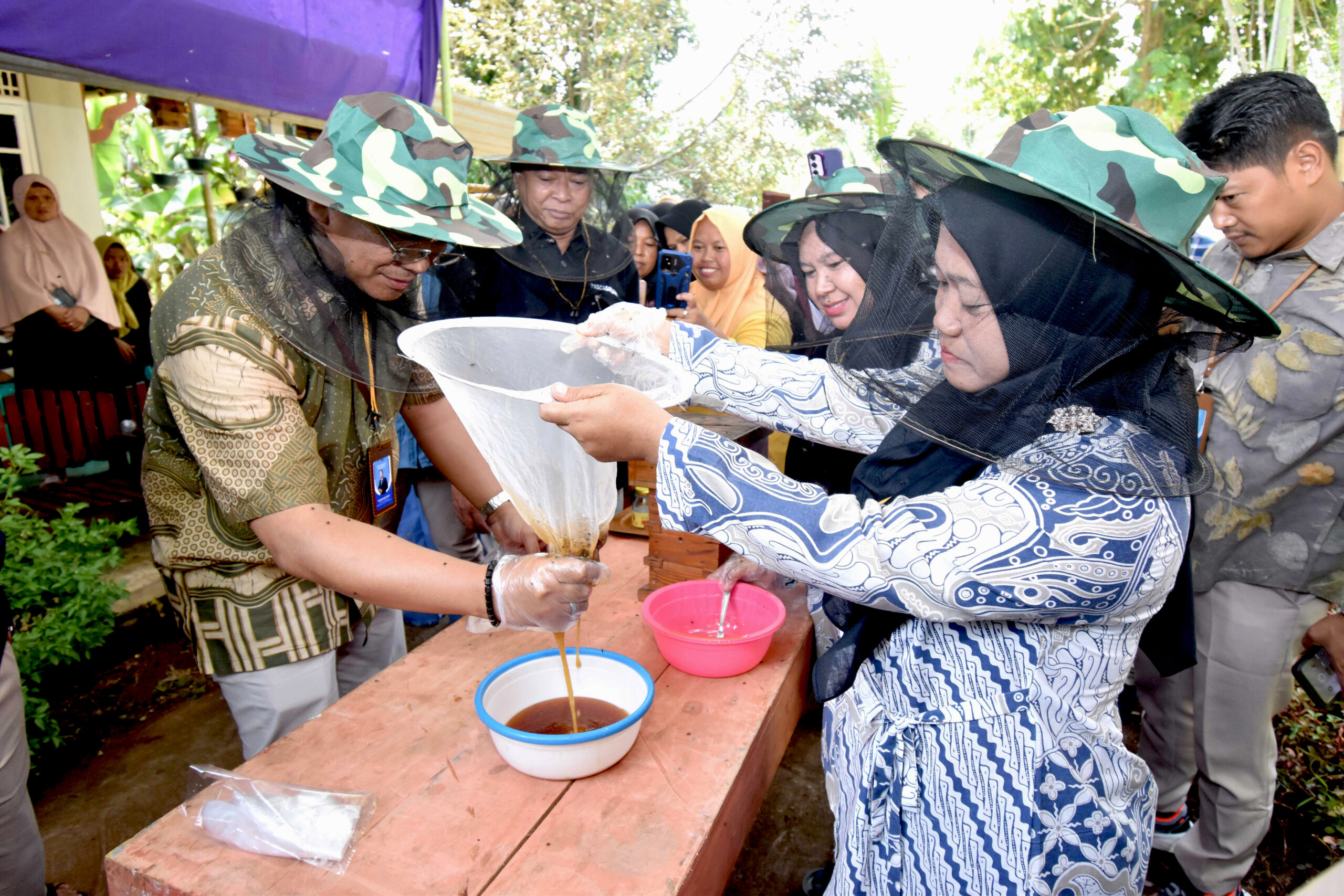The collaboration between the Government Investment Centre (PIP) and the Postgraduate Program of Jenderal Soedirman University (Unsoed) has positively impacted efforts to empower women economically in rural areas. This program focuses on 200 female ultra-micro entrepreneurs (UMi) in Langgongsari and Pageraji villages, located in the Cilongok sub-district of Banyumas regency.
Since August 2024, the participants have been engaged in intensive training on breeding Tetragonula biroi stingless bees. They are not only learning breeding techniques but also gaining insights into the packaging process and marketing strategies for honey, which has been branded as Madu Saji – Stingless Bee Honey.
One of the participants, Siti Yulianti from Langgongsari Village, reported that she has experienced the direct benefits of this training in her daily life. When contacted by telephone on Sunday (25/05), she mentioned that regular honey harvesting has helped her meet her household needs, especially during emergencies.
“The impact has been significant. Thank God, I can harvest every month. For instance, if there is an urgent need, I can fulfill it. My last harvest was really bountiful, Ma’am. From this colony, I collected 17 bottles,” she said enthusiastically.
This program not only provides materials but has also received appreciation for the ongoing guidance from Unsoed lecturers. Siti feels that she and her peers are never left to manage their business alone.
“I am happy with this program because it is not just something that is given to us and then abandoned. With Prof. Imam, we receive valuable guidance and mentorship, which makes the experience enjoyable for all members. We are taught how to produce honey, select flowers, and learn other important skills,” she added.
In terms of marketing, Madu Saji products are available in 100 ml bottles, priced at Rp50,000 each. Consumers find this price to be quite affordable, and this size is their preferred choice.
“One bottle is 100 ml for 50 thousand. On average, consumers ask for 100 ml, right?” he explained. He also noted that harvesting occurs regularly every month. “It happens once a month—normally, it’s every month,” he added.
This program has been running for two to three years, depending on the specific group. Siti mentioned that in her neighborhood, most residents are actively involved in honey cultivation.
“This program has been easily accepted by the community. It’s very simple to participate. While there are a few individuals who are somewhat reluctant, the majority are eager to get involved. Almost everyone living near me is participating,” she said.
Klanceng honey is also considered to have significant health benefits. It is safe for both children and adults to consume, and it is believed to offer various advantages.
“Babies can only consume a few drops, while adults should limit themselves to one spoonful per serving. Consuming more than this amount may cause your body to overheat, which is not advisable,” he explained, emphasizing the importance of adhering to these consumption guidelines.
For the community, this product is a favorite because it is believed to aid in health recovery and alleviate fatigue.
“Klancheng honey is the most popular variety and is said to have multiple uses. It can serve as medicine and help relieve tiredness,” he added.
This collaborative program between PIP and Unsoed demonstrates that women’s empowerment by the university goes beyond mere rhetoric; it is a tangible practice that positively impacts the lives of many individuals at the grassroots level. By adopting an approach that directly engages with the community and providing long-term support, this initiative effectively touches the lives of its participants.
















